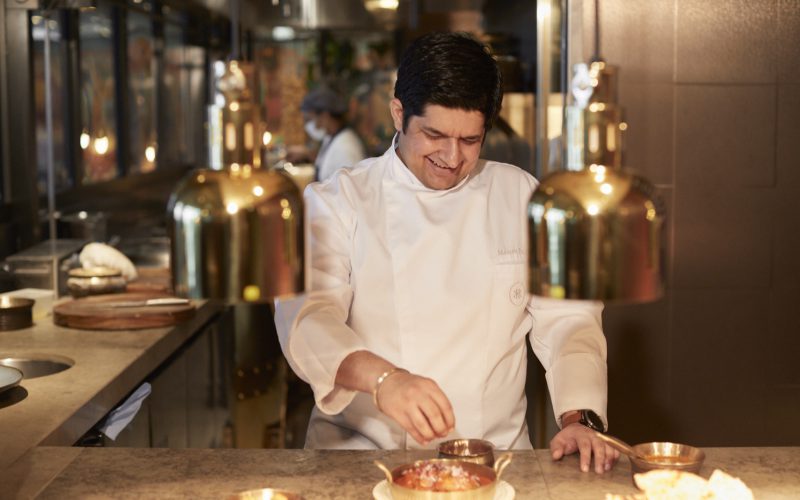The chef de cuisine at Chaat talks with Vicki Williams about his love for the cuisines of India and why both plant-based and meat play a role in the future.
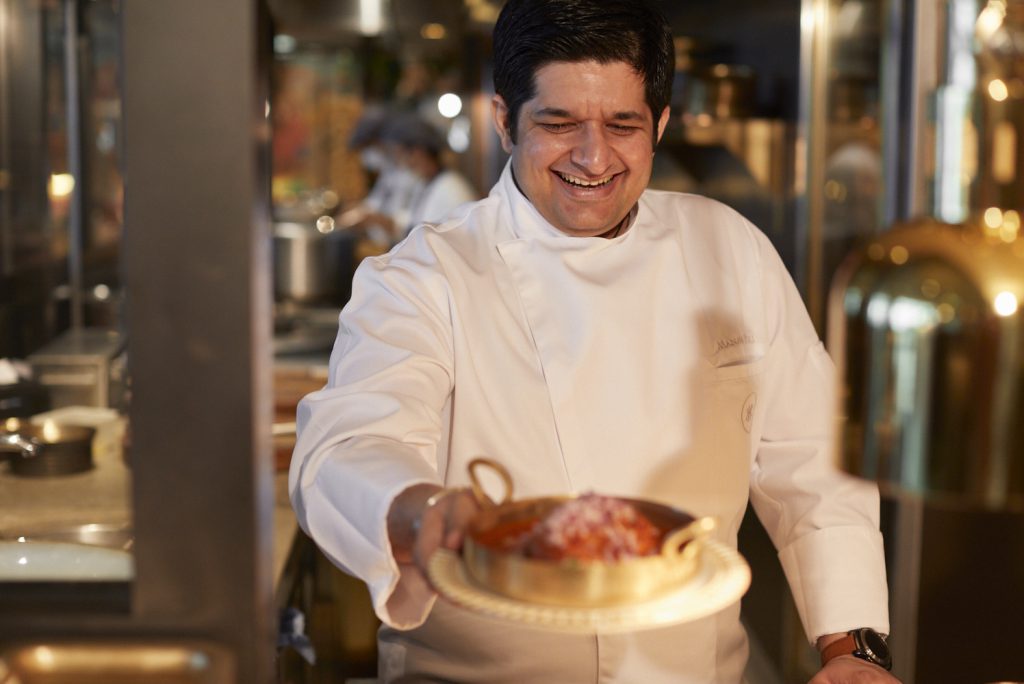
A career in hospitality was always on the cards for Manav Tuli, but it was the creative world of the kitchen, and the rock star status of the chef, that quickly won him over.
Over the past 18 years he has gained vast knowledge of the cuisines of his native India and deepened his love of its street foods.
Honing his skills in the best kitchens from Kerala to London, he is credited with gaining a Michelin star for Tamarind in London in 2019, the first Indian restaurant in London to be awarded one.
Now as chef de cuisine at Chaat at the Rosewood Hong Kong, he has gained a large fan base that returns time and again for his reimagined take on Indian street food and elevated classics.
When did you decide to become a chef?
After joining hotel management school, I was sent to exposure training to get a real feel of a hotel environment. During that training I noticed a few things that influenced my decision to become a chef.
The most respected position in the hotel, at that time, were chefs. They had a different aura around them. They were the rock stars of the hotel. That feeling, and the camaraderie, was infectious.
Also, chefs had access to the best food and ingredients. By best I don’t mean the most expensive, but the freshest and the best in terms of texture and taste.
And, it was creative. Repetition is a part of life in all the other hotel departments, but for chefs their role is to constantly create new things and bring new ideas to guests.
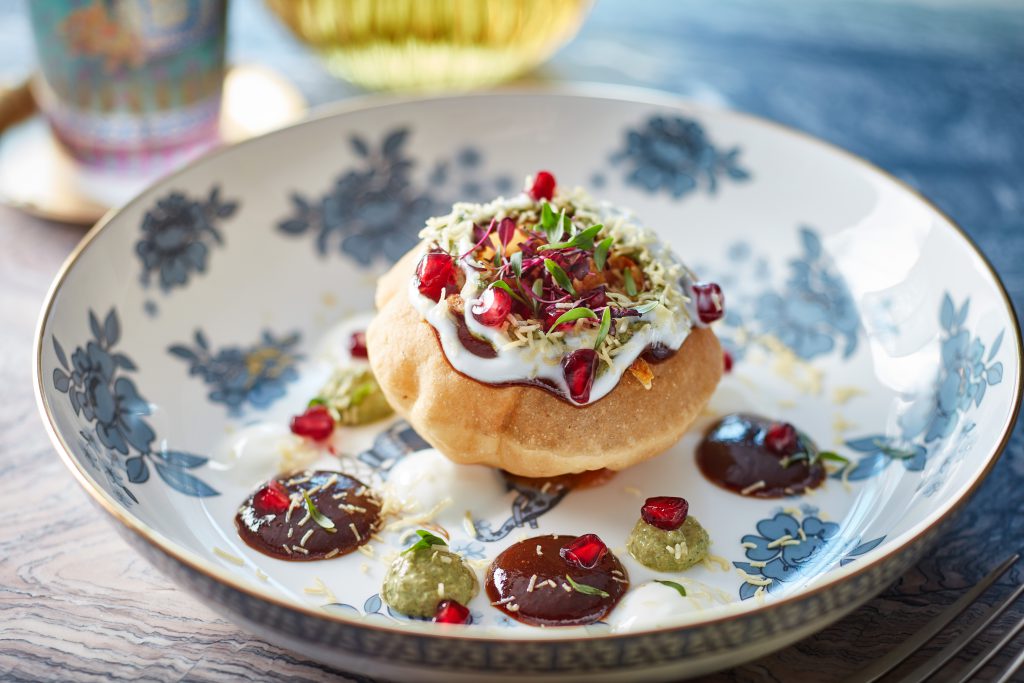
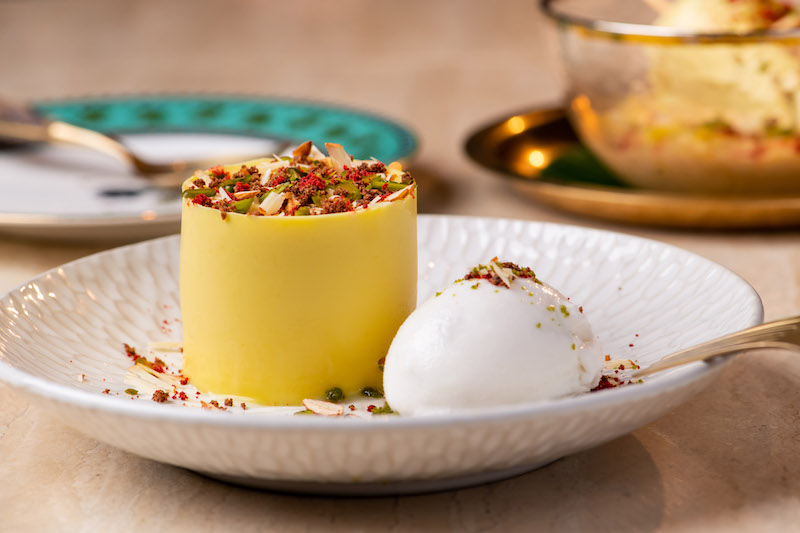
Who was your biggest influence as a young chef?
Chef Surinder Singh, who I worked for in 2004 at the Trident Udaipur in Rajasthan, India. His attitude and passion towards work and cooking inspired me to understand more about Indian cuisine. He inspired my addiction to cooking, learning, recording various recipes, and understanding the various techniques of cooking.
Tell me more about Chaat and how it fits with your cuisine philosophy.
My cuisine philosophy is to share Indian food in all its glory, diversity and authenticity, without changing the traditional essence, but definitely adopting to the locally available ingredients.
Food in India gets more refined as you move up the social hierarchy, but to present the street foods of India in the refined environment of Rosewood was a challenge. So we started passing all the dishes through the sieve of two words, refined and balanced.
This approach allows me to cook with my own character without losing the traditional value.
Tell me about one of your current signature dishes and why you would serve it to peers.
In the streets of Hyderabad and Calcutta, a samosa is made with thin pastry sheets and stuffed with minced meat, called Keema Samosa. It is generally sold by the Muslim community. It is one of my favourite dishes and I wanted to put it on the menu, and to give it our own touch was important, but at the same time keep things simple to avoid any complications.
I first started working on this dish with chef Siddharth Krishna in London in 2011. We worked on different shapes and sizes and came up with the idea of a cone. Instead of frying it we started baking it and realised that for a restaurant scenario, this turned out to be even better in terms of quality, faster to deliver and much more consistent. Thus it ticked all the boxes.
It was introduced in two restaurants before Chaat, Chutney Mary and Tamarind, both in London, and has been a top seller in all three.
At Chaat, we do it with a plant-based ‘meat’ made from jackfruit, and no one misses the meat. When people talk about Chaat, they always get the picture of this dish in their mind.
This dish is a classic example of Chaat’s philosophy. It’s one hundred percent traditional in taste, yet fulfils the refined and balanced approach that we strive for.
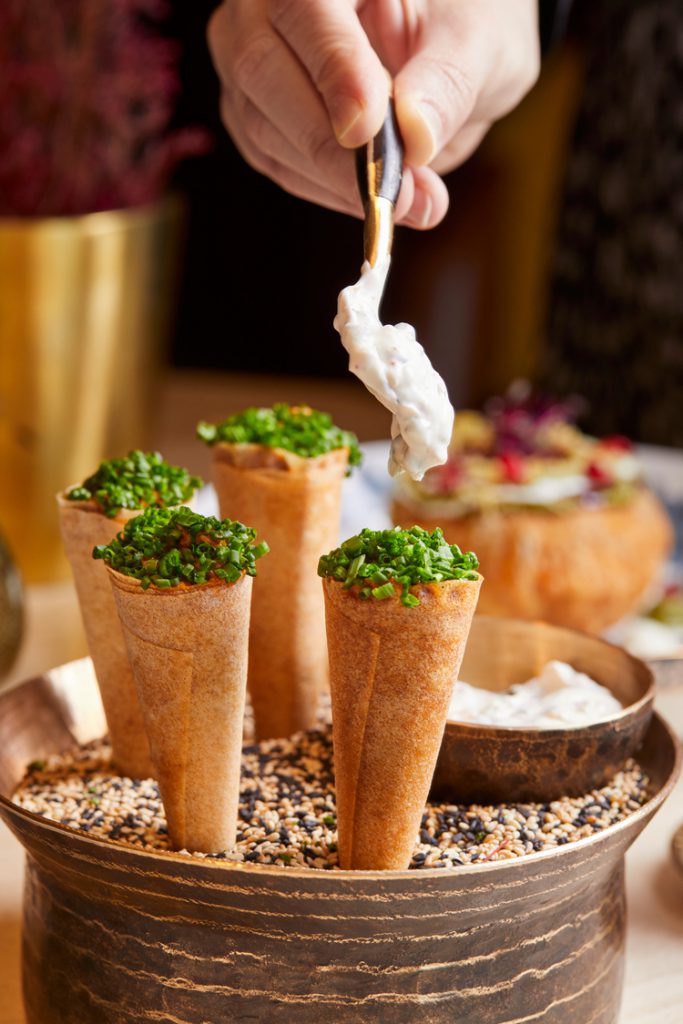
Do you have any comments on the future of dining?
We can now see that people are much more well informed and aware of their social responsibility for our planet. That’s why more and more people are turning vegan by choice and I think more and more are going to adopt this approach. Thus the need for plant-based meats has skyrocketed.
I totally support this approach, but I personally feel shutting out meats from the diet is not the right approach, in the long run. Being omnivores, humans are capable of eating and digesting both meats and plants, so the length of the gut falls somewhere in-between carnivores and herbivores. Following on, our bodies are designed to eat both meat and plants to get the best nutritional value for healthy living.
In India, Hindus have a religious belief that the days of the week are allotted to various gods. Thus religiously they divide their eating habits according to that. For example, my wife Neha, is vegetarian by default on Tuesday, Thursday and Saturday every week.
What was the first thing you learned how to cook?
My grandmother taught me how to make butter chicken when I was 16.
What would Bar Talk always find in your fridge?
Milk, eggs, bread, and chocolate ice-cream.
Where is your favourite place for an after-work drink and what would you order?
The terrace at Shu K at K11 Musea, for a chilled Asahi beer.

